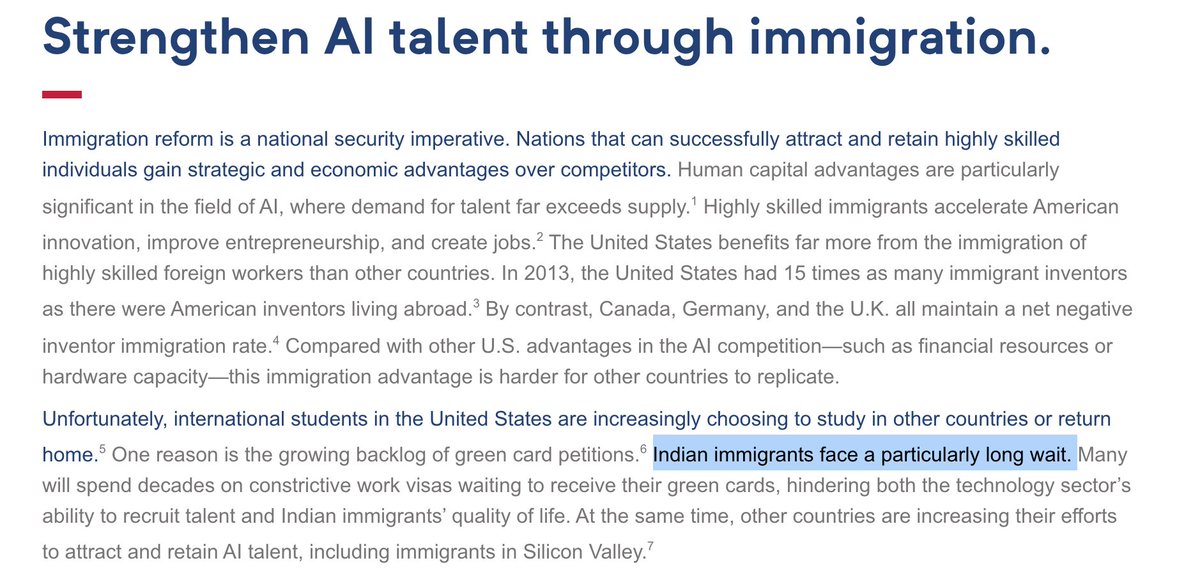
The U.S. National Security Commission on Artificial Intelligence submitted its final report to the president and Congress last week. It's pretty all-encompassing: reports.nscai.gov/final-report/t…
Among other things, it advocates for "targeted disentanglement" with China: maintaining collaborative AI research and technology commerce, while building resilience, reducing illicit technology transfer, and protecting critical sectors.
Also, the report specifically highlights the backlog on Indian immigration to the United States as a problem. 

It also advocates for a number of other sweeping immigration reforms (all will be politically tricky):
- Broaden scope of O-1 visa
- Increase job flexibility for H-1B
- Give green cards to STEM PhDs
- Double employment-based green cards
- Create new entrepreneur visa category
- Broaden scope of O-1 visa
- Increase job flexibility for H-1B
- Give green cards to STEM PhDs
- Double employment-based green cards
- Create new entrepreneur visa category
A chapter on hardware: "The dependency of the United States on semiconductor imports, particularly from Taiwan, creates a strategic vulnerability...to adverse foreign government action, natural disaster, and other events that can disrupt the supply chains for electronics.”
By the way, in October, @ORFAmerica partnered with @CEIPTechProgram for a discussion with the co-chairs of the commission (Eric Schmidt and Bob Work), as well as K. VijayRaghavan, Principal Scientific Advisor to GOI, and others.
You can watch it here:
orfamerica.org/recent-events/…
You can watch it here:
orfamerica.org/recent-events/…
• • •
Missing some Tweet in this thread? You can try to
force a refresh









